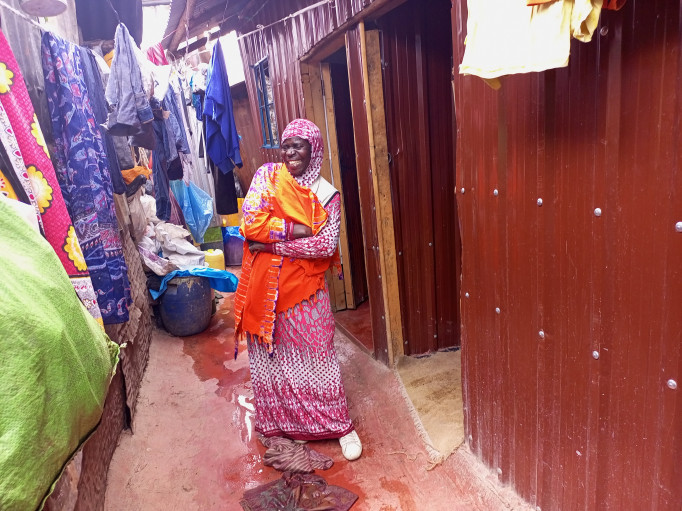“My life was hard. I used to scavenge in the dumpsite to survive which brought risks for my health due to the dirty environment.” Amina
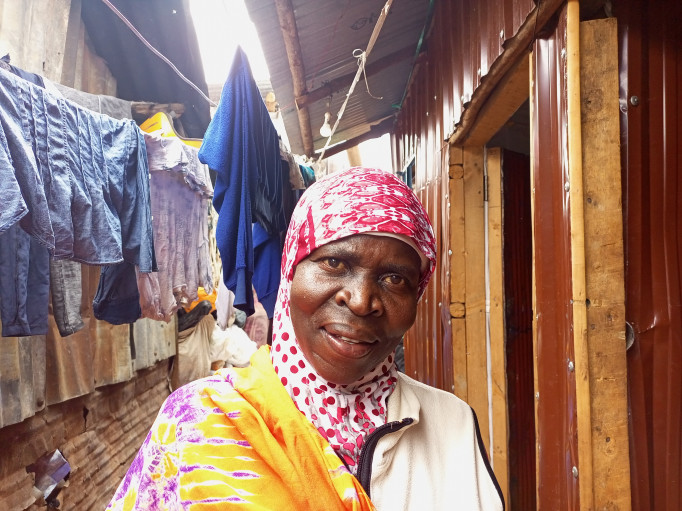
As a mother, 57-year-old mother, Amina, would do just about anything for her children. Dropping out of school as a child after just three years, she knows first-hand how difficult life can be for children growing up in marginalised communities in Kenya.
After marrying when she was just 15, Amina had five children in a rural area in the west of the country. With seven mouths to feed though, life was difficult, and Amina separated from her husband, prompting her in-laws to evict her. With no other choice, she left the house, taking the children with her.
Amina made it to Nairobi, setting up a new life in one of the largest slum communities in the city. She had three more children but more heartbreak was just around the corner as six of her children passed away for reasons that she still does not know for certain. She suspects the cultural beliefs held by her tribe that if you take your children away from the family home they will be cursed have come to pass and are the reason for their deaths.
Unfortunately, despite wanting the best for her two remaining sons, Kiriku, now 16, and Baze, 18, the high school fees were impossible for her to maintain and when they were not much older than she had been, they too dropped out of school. The family’s extreme poverty led to the boys moving onto the streets where they scavenged and begged for survival, while Amina struggled to earn enough to cover any of her own basic needs.
“I faced difficulties in feeding my children, keeping them in school, paying our rent – at one point, we were all sleeping out on the streets. I was desperate for my children and myself since our future was not promising. We were struggling to eat and afford other basic needs.” Amina
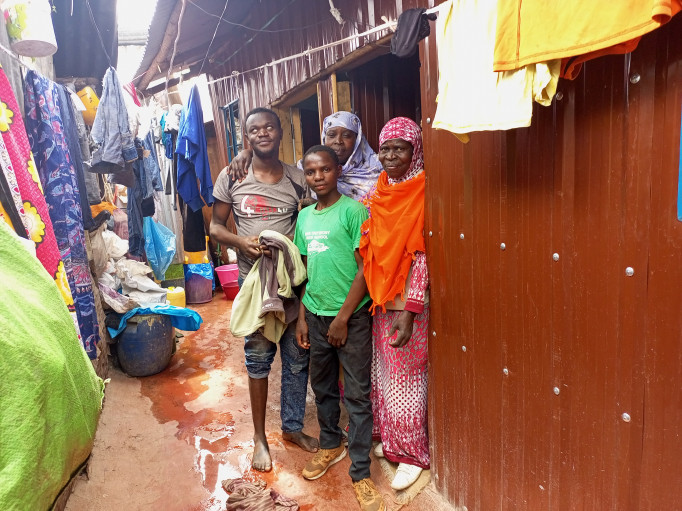
After moving onto the streets, Kiriku and Baze also began working on the dumpsite, scavenging scrap metal to sell in order to get money to survive. Both of them used drugs to cope with the challenges of being on the streets – for Baze, his abuse of drugs got so severe that he became blind and had no choice but to return to live with his mother. For Kiriku, Amina barely saw him and was often worried for him.
In October 2021 however, Amina came to know Pendekezo Letu (PKL), Toybox’s partner organisation in Nairobi through Kiriku’s involvement in one of their existing projects. When they met, she was still scavenging on dumpsites to earn money but, through PKL’s support and guidance, Amina joined a local Village Savings and Loans Association (VSLA) which taught her financial awareness, how to start up a business and how to save for the future. With her new-found knowledge, Amina explored business options and with her existing sewing skills, she set up her own business of sewing baskets from sacks which she could sell. Seed money from the VSLA allowed her to buy a second-hand sewing machine and before long, she was selling her products to a range of customers.
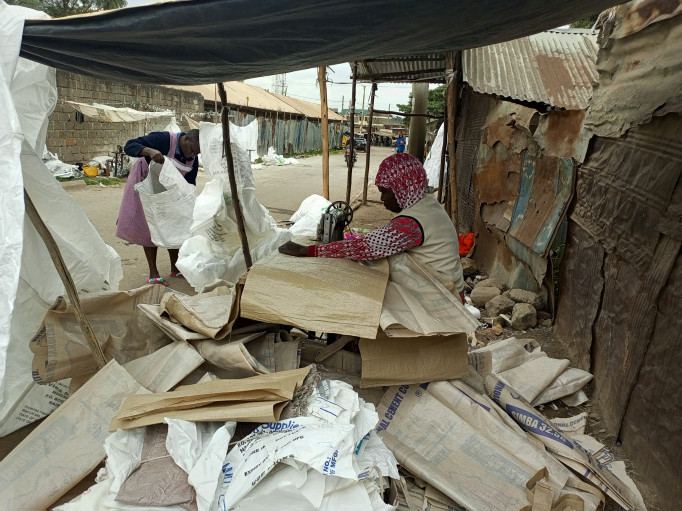
"My business is sewing baskets from sacks that I sell. There is a readily available market for them because they are used by traders, especially women, as they go about their daily routine of shopping and carrying luggage. I am happy – very happy – that I can cater for my needs and those of my children now without depending on anyone else.
I start my day by going to the nearby market to buy the sacks. I wash them all in my business area and later knit them together into the preferred sizes. My sewing shed is next to my house – I can’t work very far from there because I have to look after my blind son. On Fridays, I also go to prayers and attend the Village Savings and Loans Association (VSLA) where I am a member.
The thing I like most about having my own business is being self-dependent and gaining respect from the community for my work because it is meaningful. I am able to cater for my needs and those of my children. I am proud of the strong woman I’ve become. Despite everything – my separation, living on the streets and losing so many of my children, my son going blind – I have remained strong – I know I have the ability to overcome life’s challenges."
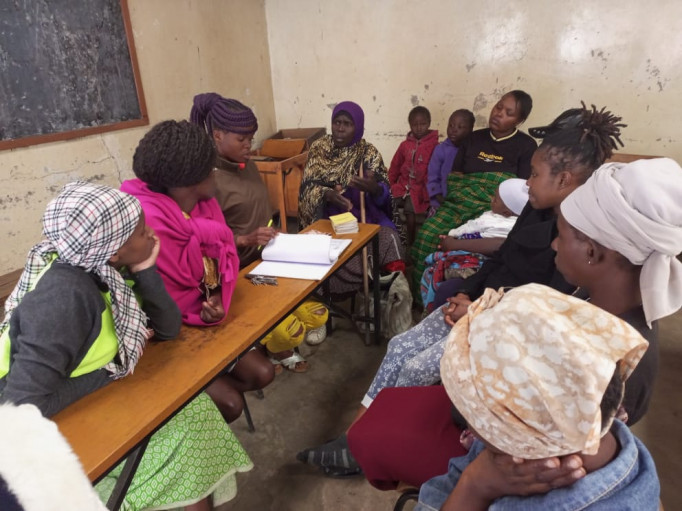
"My life has really changed since attending the project. I’ve learned how to save and borrow loads from my VSLA group and I’ve been able to boost my business through a seed capital loan thanks to PKL – that’s something I’m really happy about as my income has increased. I can pay my weekly contributions to the VSLA group without any issues and I have money from my profits to cater for my needs. In Nairobi, everything needs money, including water, food and rent, so with this profit I can afford the basics.
Also, Kiriku is now coming home in the evening after scavenging. Before I could have days without seeing him. Now that I can feed him, he comes often. I can buy clothes for him and Baze and pay rent for them. I believe that soon, my son will permanently return home. He’s been on the streets for a long time and I know he has friends so he may not want to leave, but I know he will eventually come.
I’m looking forward to expanding my business. I’ve started training other VSLA group members on how to sew sack baskets to help them improve their income too. I hope to include this in my business plan in the future so I can train people for a small fee to increase my income. My dream is to expand my business so I can rent a house which will act as my workshop space so I can make so many baskets that I’ll become a major supplier of these products.
The most important thing to me right now is to protect my life and the lives of my children. And protecting my business from collapsing. I hope one day I can save enough money to buy a small piece of land where I can build a house for us all."
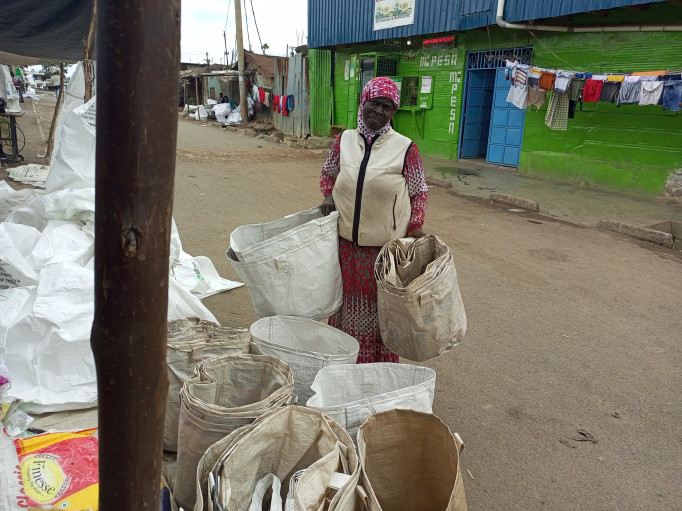
As well as supporting Amina, PKL are also working alongside Kiriku and some of his friends on the street. The teenagers are receiving information about their rights as well as mentorship to support their mental health and provisions with food and clothing. This greater understanding of his rights is changing Kiriku and is healing the relationship with his mum, which is encouraging him to visit more often. He’s also receiving support to decrease his drug use, which is changing his life.
“Children on the streets in Nairobi need residential rehabilitation centres for them to overcome drug abuse. They need food, clothing and medical assistance as well as assistance to be reintegrated back to families, schools or training that will enable them to have a better future. If I were the President, I’d bring reforms and policies to help transform the lives of street-connected children and ensure that families are supported to prevent more children from going on the streets. If I’d had more money, my children would not have ended up on the streets.” Amina
